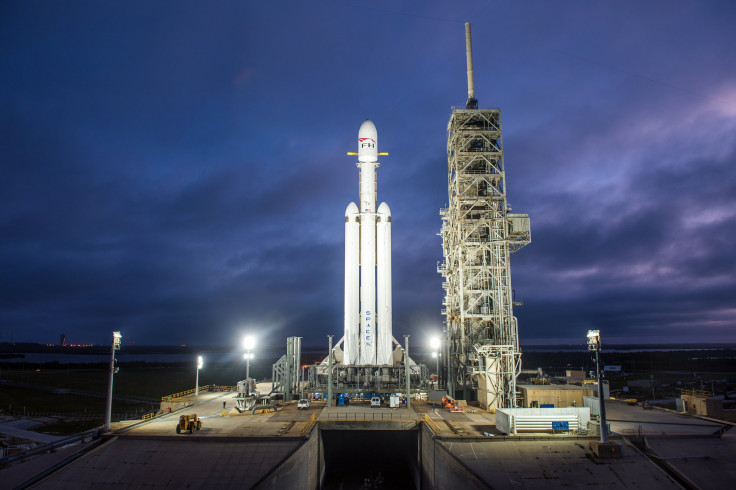Watch Live Stream: SpaceX To Launch Falcon Heavy
UPDATE: 1:58 p.m. ET - SpaceX delayed the launch to 3:45 p.m. Tuesday, just 15 minutes before the launch window closes. Elon Musk tweeted that he initiated the launch sequence at 1:52 p.m. before the launch. He revealed that the sequence is initiated through a mouse click on a computer rather than a button.
UPDATE: 1:15 p.m. ET - The Tuesday launch of the Falcon Heavy rocket was delayed to 3:05 p.m. ET, according to the SpaceX website.
Original story:
An attempt to launch the largest rocket in the world is scheduled for Tuesday after months of delays. SpaceX is scheduled to launch its Falcon Heavy rocket at 2:20 p.m. ET Tuesday and when the rocket lifts off, it will officially hold the title of the largest functional rocket in the world, according to SpaceX.
The launch was originally scheduled to happen last November, then December, and then January and finally was scheduled for Tuesday. The original launch time was set for 1:30 p.m. but was pushed due to upper-level wind shear, according to SpaceX.
Tuesday's launch will be the inaugural test launch of the rocket that is made up of three Falcon 9 nine-engine cores, the equivalent of 27 Merlin engines. The rocket will generate more than five million pounds of thrust. While the rocket won't be carrying humans or any scientific cargo this launch, it will be carrying SpaceX founder, Elon Musk's, Tesla Roadster.
SpaceX plans to make an attempt at landing all three first stage cores of the rocket. Two of the first stages are set to land at the Landing Zones one and two at Cape Canaveral Air Force Station and one is set to land on the SpaceX drone-ship "Of Course I Still Love You."
Watch SpaceX launch the Falcon Heavy rocket live:
The second stage will attempt to put the Tesla Roadster "into a precessing Earth-Mars elliptical orbit around the sun," said a release from SpaceX. Musk said in a tweet that no matter what happens, the launch is "Guaranteed to be exciting."
There is a backup launch window scheduled for Wednesday beginning at 1:30 p.m. ET if Tuesday's launch gets canceled altogether. A simulation video shared Tuesday shows the trajectory of the rocket and the payload. If the launch goes according to plan, the Tesla vehicle will just end up out in space for about a billion years.
The rocket was designed to carry humans to deep space and Mars in the future. Launching the rocket costs $90 million even with the first stages of the Falcon 9 being reused.

© Copyright IBTimes 2025. All rights reserved.



















